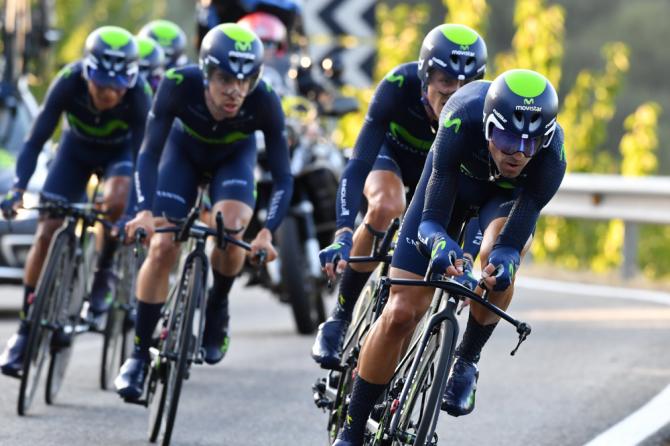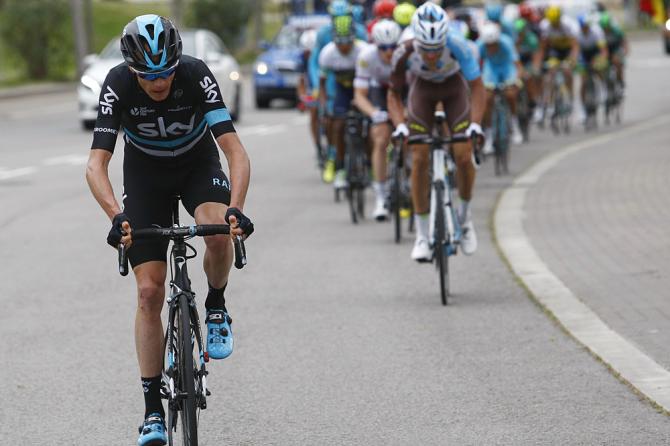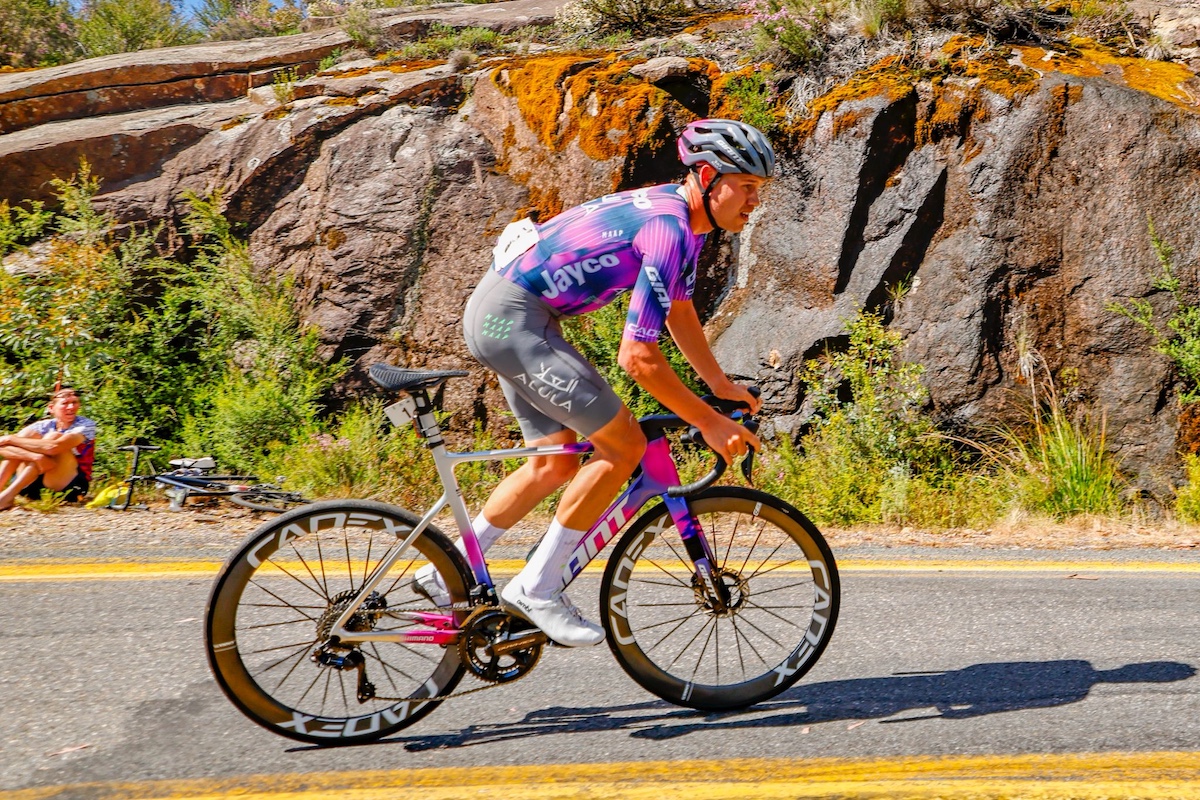Froome starts European season at Volta a Catalunya - Preview
Contador, Bardet and Valverde looking to challenge Team Sky
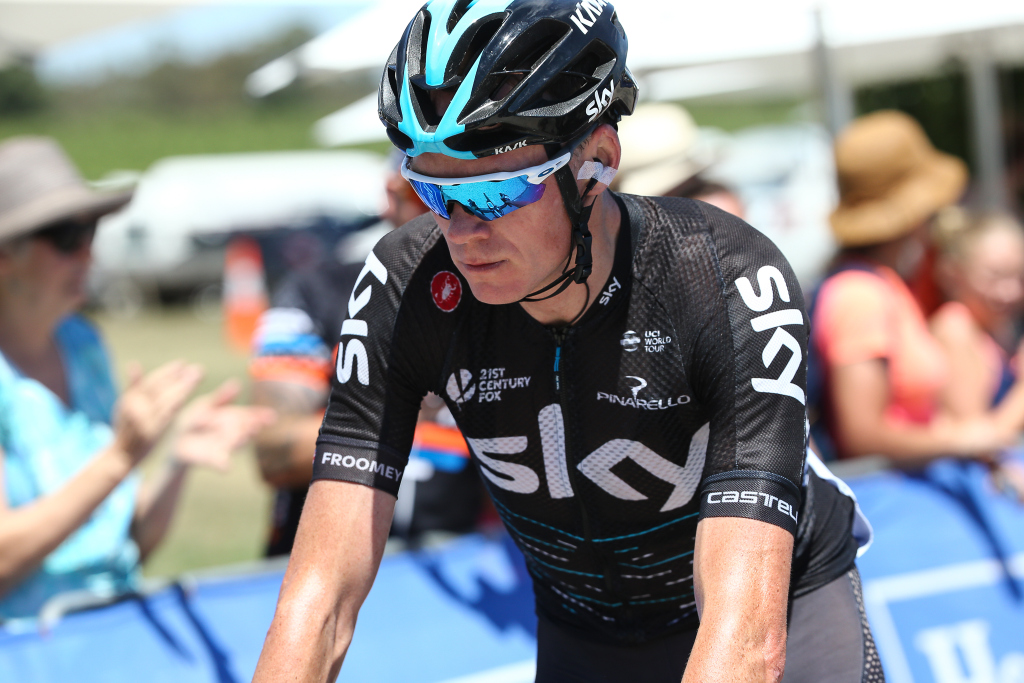
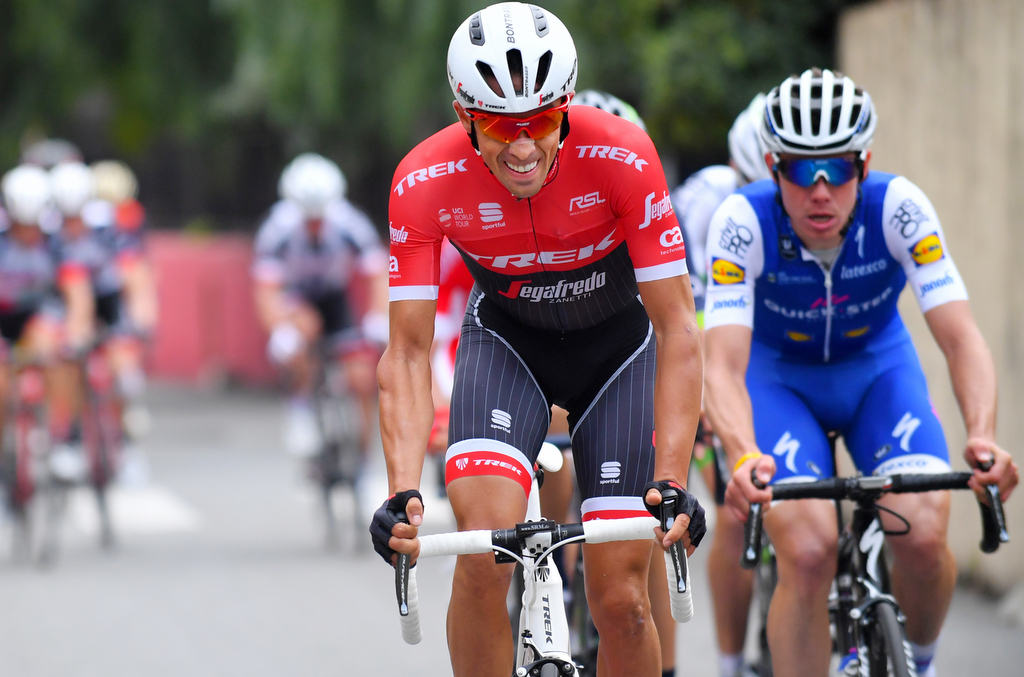
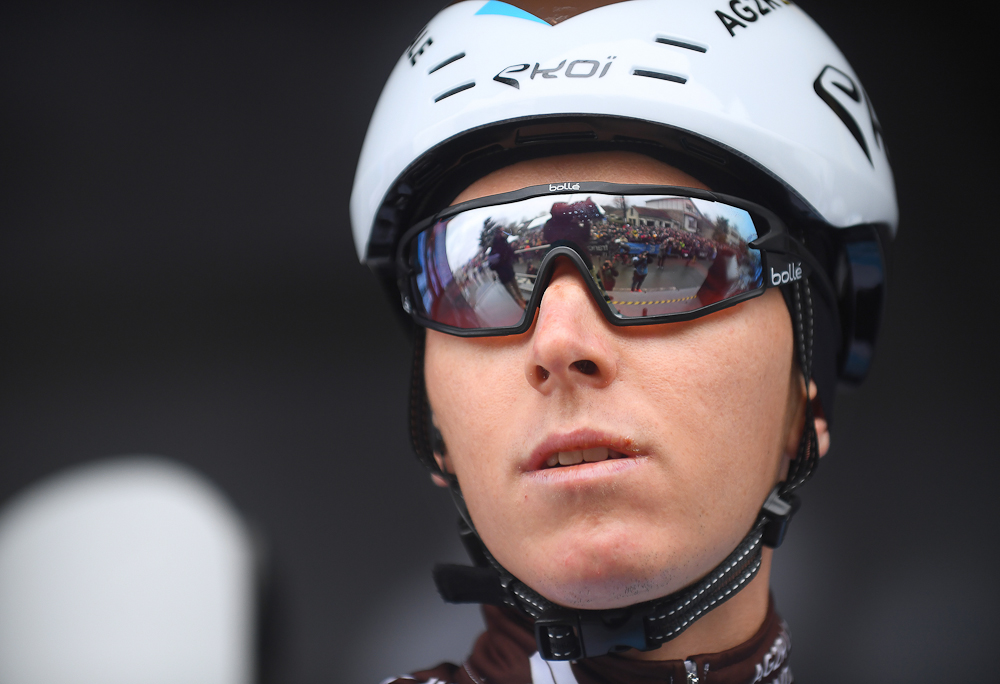
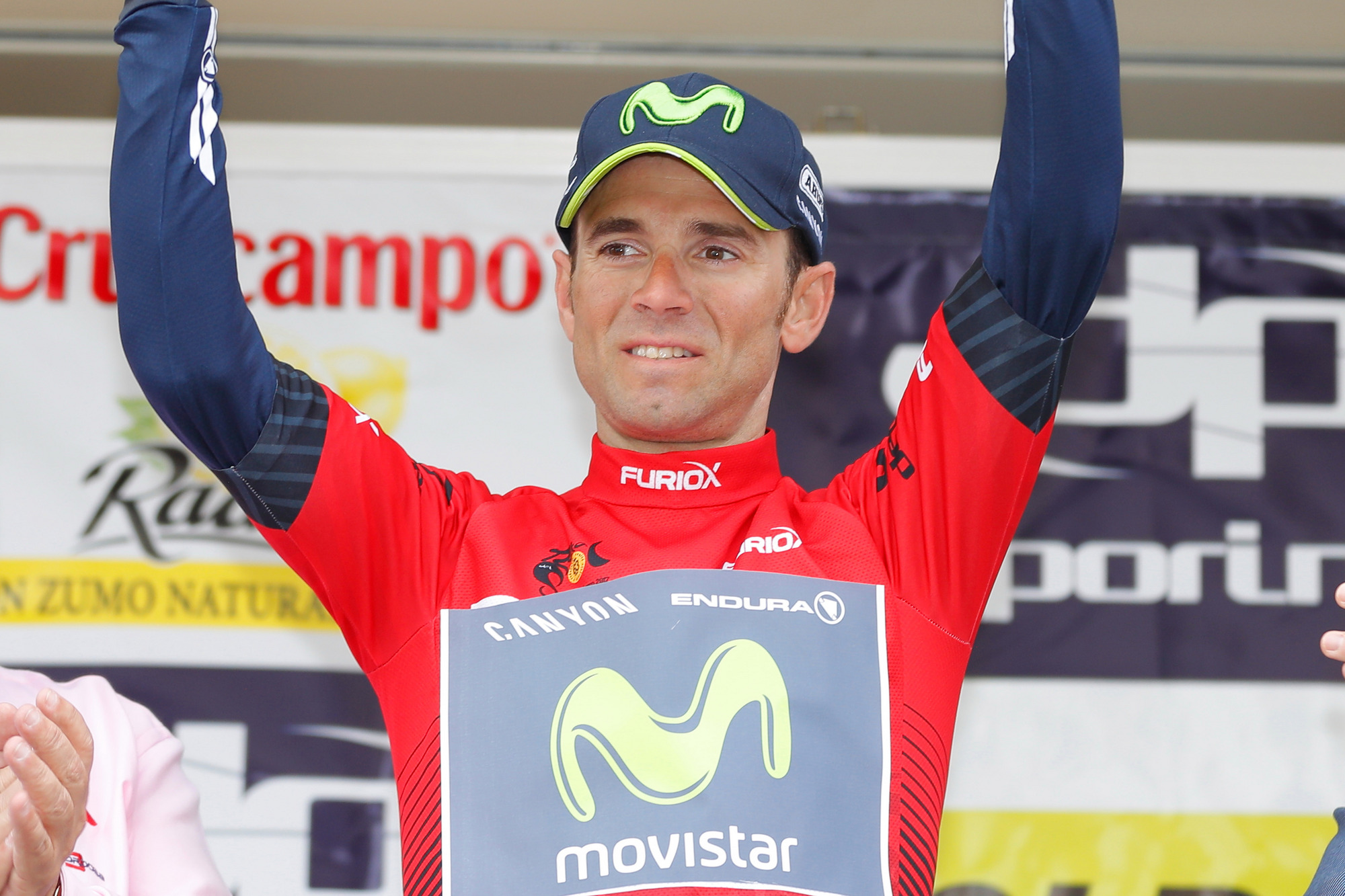
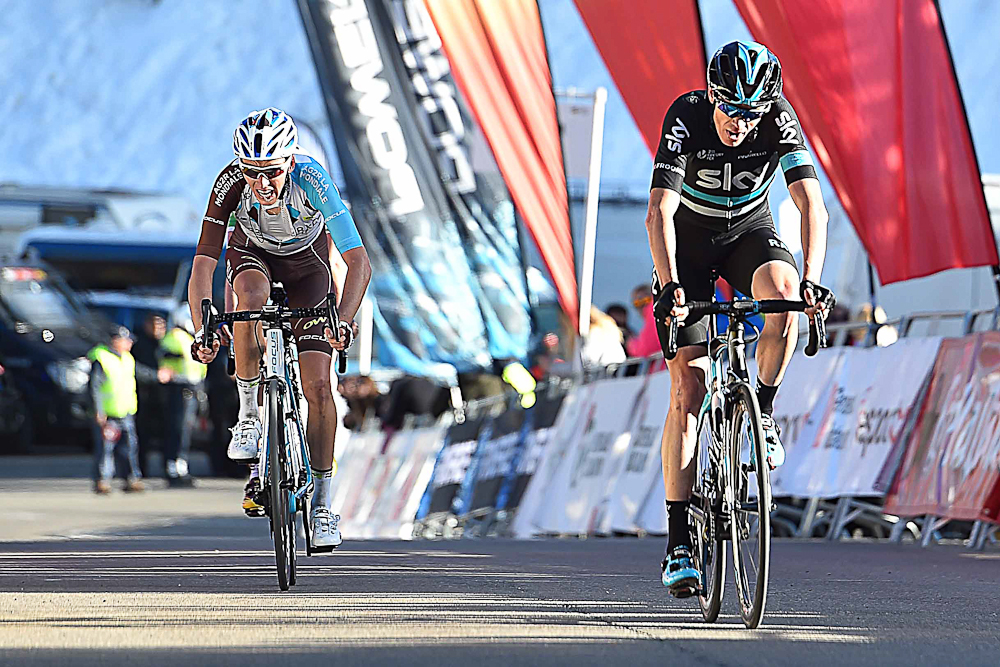
Chris Froome (Team Sky) makes his European racing debut at the Volta a Catalunya on Monday and can expected some intense and aggressive racing, with Alberto Contador (Trek-Segafredo), Romain Bardet (AG2R-La Mondiale) and Alejandro Valverde (Movistar) itching to see if they can defeat the sport's best stage race rider.
Contador: Froome is Tour de France favourite, Quintana is taking a risk
Bardet: Now it's time for the serious stuff
Valverde out of Paris-Nice with illness
Volta Ciclista a Catalunya past winners
Thrilling Paris-Nice finale ends in heartbreak for Contador
Is the ASO saving the Volta a Catalunya?
Bardet returns to racing at Volta a Catalunya
LottoNL-Jumbo with Gesink and Kruijswijk for Volta a Catalunya - News Shorts
In previous years, Froome has tended to be closer to the edge of the action than in the thick of it at the Volta a Catalunya, one of Spain's top three stage races together with the Vuelta a España and Vuelta al País Vasco. In 2015, he fell ill during the race, and the week-long stage race is perhaps a little too early in the season for a rider who first tends to shine at WorldTour level in April at the Tour de Romandie.
However, Froome never rides Catalunya simply to make up the numbers, and coupled with his stage racing track record, Froome remains one of the leading favourites. He finished eighth overall in the Volta in 2016 and had a career-best sixth place in 2014.
This time around, there are multiple chances for Froome, and other GC stars, to shine or lose time. Cracks could appear as early as the mountainous middle section of stage 1, which for the sixth year in succession will start and finish in the coastal town of Calella. However the stage eases as the road winds back to the Mediterranean - to the point where in 2016 the racing ended in a bunch sprint win for Nacer Bouhanni (Cofidis), meaning time gaps amongst the overall contenders during stage 2's team time trial. And at over 41km and on a lumpy, exposed inland route, this is a hefty-sized beast of a test against the clock and one that is likely to do some severe damage.
"We've haven't had a team time trial for a good decade, and to be honest, I can’t remember when the race had one that was so long," Catalunya race director Ruben Peris tells Cyclingnews. "This team time trial's tricky, too, it's got a hilly first part, and then turns flatter later on."
A 'tricky' team time trial test
For the record, the last time there was a team time trial in Catalunya was in 2007, a 15.7km effort won by Caisse d'Epargne, the same race where a certain Mark Cavendish took his first ever WorldTour stage win. In the 1980s and 1990s, team time trials in the Volta were frequent, most of them in the 20-30km range. But the last team time trial of this length in the Volta was in 1964, a 42-kilometre effort running from Lloret de Mar to Saint Feliu de Guixols. It was won by Federico Martin Bahamontes’ Margnat-Paloma squad ahead of two top 1960s teams, as Faema finished at 29 seconds and KAS at 1:05. There was a near five-minute margin between the first and last of the eight teams.
The latest race content, interviews, features, reviews and expert buying guides, direct to your inbox!
Returning to 2017, Team Sky's formidable line-up is expected to include time triallists of the calibre of Wout Poels [if he recovers from injury], Vasil Kiryienka, Geraint Thomas and, of course, Froome himself.
Provided there are no repeats of the bizarre wheel incidents which wrecked their TTT in Tirreno-Adriatico, Team Sky has the strength in depth to produce an impressive ride. Other top rivals and TTT specialists, though, such as BMC, Movistar and Quick-Step Floors could all do well on a course as long as this, where discipline and technique will be decisive. And given it is such a long course, the time gaps created could have a huge impact on the overall.
Asked if the TTT was so long it could end up deciding the GC, Peris countered: "I think there are more than enough mountainous stages for that not to happen."
Of those, stage 3 is considered the toughest for the climbers, in that it contains what the route book defines as three first category ascents and concludes on the well-known summit finish of La Molina, the opening stage of the Pyrenees for the Volta in 2014, 2015 and 2016.
Technically a first category ascent, La Molina is not that tough and the time differences could well be as minimal as in 2016, with 24 riders finishing inside 22 seconds of the stage winner, Dan Martin (Quick-Step Floors). Possibly only poor weather, which has proved a key factor in recent years in the Volta when it heads into the Pyrenees, could make this stage more decisive.
The really big climbing test will likely prove to be two days later with a summit finish of Lo Port, in Tortosa, on the other side of Catalonia near the Mediterranean coast. It has only been used twice before. The first, in 1985, produced a stage win for Colombian climber Alirio Chizabas, the biggest victory of his career during a brief three-year stint racing for Spanish outfit Kelme, and the second time in 1991 for his better known compatriot, Lucho Herrera.
Together with the team time trial, the 8.4km long Lo Port climb, with an average gradient of nine per cent and ramps of up to 20 per cent, will almost certainly decide the overall classification. Although, looking at the outright winners of the Volta - in 1985 climber Robert Millar defeated local hero and future Kelme director Vicente Belda, and five times Tour winner Miguel Indurain in 1991 - it is hard to predict what kind of racer will be clad in the green and white race leader's jersey afterwards.
Barring crashes, Sunday's traditional closing stage, which consists of little more than the usual laps round the Montjuic park motorsport circuit in Barcelona, and a steady 2km ascent, is unlikely to have little impact.
The favourites
As well as Contador, Valverde, Bardet and Froome, the favourites will include Bauke Mollema (Trek-Segafredo), Ilnur Zakarin (Katusha-Alpecin), Rafael Majka (Bora-hansgrohe), Adam Yates (Orica-Scott), Julian Alaphilippe (QuickStep Floors) and Steven Kruijswijk (LottoNL-Jumbo).
A special mention should go to Dan Martin (Quick-Step Floors) for many years of living locally. He knows the Volta route like the back of his hand, and has always made the race a special target.
Martin was already a winner of the Volta in 2013, third overall, race leader and a stage winner last year and has recently taken a third place in Paris-Nice, so he's clearly in good form. Outsiders could include Hugh Carthy (Cannondale-Drapac), who turned in a breakthrough ride here last year, and French neo-pro David Gaudu (FDJ), winner of the Tour de l'Avenir last year.
Bouhanni and André Greipel (Lotto-Soudal) will both be gunning for the race's three possible - but by no means certain - bunch sprints. These could come on stage 1, stage 4 [assuming the sprinters get over a short-but sharp second category ascent 13km from the finish in Igualada] and at the end of a lumpy stage 6 to Reus, 24 hours before the final showdown in Barcelona.
Alasdair Fotheringham has been reporting on cycling since 1991. He has covered every Tour de France since 1992 bar one, as well as numerous other bike races of all shapes and sizes, ranging from the Olympic Games in 2008 to the now sadly defunct Subida a Urkiola hill climb in Spain. As well as working for Cyclingnews, he has also written for The Independent, The Guardian, ProCycling, The Express and Reuters.
